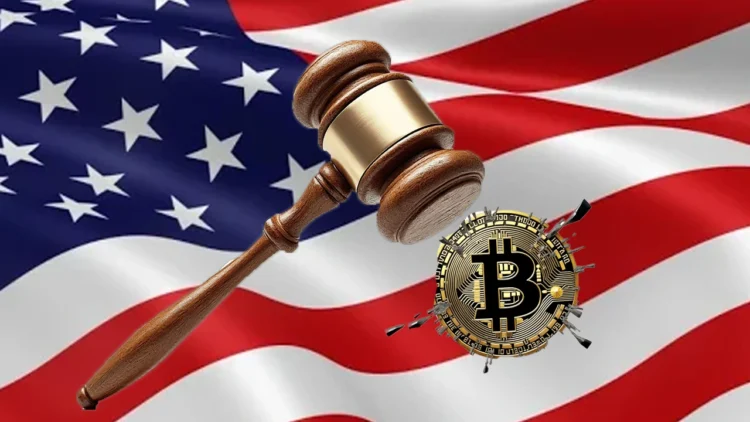Federal Reserve’s Stance on Bitcoin Accumulation
In a recent declaration, Federal Reserve Chair Jerome Powell clarified that the Federal Reserve is not inclined to join any governmental initiatives to amass Bitcoin. He emphasized that such decisions fall within the purview of Congress, and the Federal Reserve does not intend to seek amendments to existing laws that would facilitate Bitcoin holdings. This statement had an immediate impact on the market, leading to a rapid decline in Bitcoin’s value from its peak earlier in the week.
Furthermore, the likelihood of a U.S. Bitcoin Strategic Reserve (BSR) decreased from a 40% chance on the 18th to 34% following Powell’s remarks, as reported by the Polymarket platform. Insights from WuBlockchain have delved into the question of whether the Federal Reserve could obstruct the creation of a national Bitcoin reserve.
Can the Fed Block the Bitcoin Strategic Reserve Plan?
The United States Congress holds the ultimate authority in the financial realm, responsible for crafting regulations and empowering agencies such as the Securities and Exchange Commission (SEC) and the Federal Reserve to fulfill their roles. While the Federal Reserve operates with a significant degree of independence in crafting monetary policy and maintaining national economic stability, it does not possess the authority to veto the decision to establish a Bitcoin Strategic Reserve.
Could the Trump Administration Swiftly Establish a Bitcoin Strategic Reserve?
The Trump administration, if it chooses to swiftly establish a strategic Bitcoin reserve, could potentially issue an executive order directing the Treasury Department to leverage the Exchange Stabilization Fund (ESF) for direct Bitcoin purchases. Notably, the management of this fund does not fall under congressional control, providing the President and the Treasury with considerable autonomy in its utilization. This method would circumvent the need for congressional consent and potentially mitigate political opposition. However, the permanence of such a reserve remains uncertain, as subsequent administrations could rescind or alter the executive order.
Formulating a Long-term Bitcoin Strategic Reserve
To construct a sustainable and enduring Bitcoin Strategic Reserve, a more robust and legal approach would involve legislative action by Congress, integrating Bitcoin into the “Strategic Reserve Act” or similar legislative frameworks. This would formally designate Bitcoin as a national strategic asset.
The proposed “U.S. Bitcoin Strategic Reserve Act,” introduced by Senator Cynthia Lummis, follows this legislative path and is currently under review by the Senate Banking Committee. However, this process is inherently time-consuming and may encounter obstacles, as the bill must secure approval from both the Senate and the House of Representatives, in addition to being signed into law by the President. Ultimately, the Treasury Department, rather than the Federal Reserve, would assume a leading role in executing the Bitcoin reserve.
Exploring a Middle Path for Bitcoin Allocation
A potential middle ground could be charted by the Federal Reserve and the Treasury Department concerning Bitcoin allocation. The Federal Reserve could engage in open market operations to acquire Bitcoin and incorporate it into its balance sheet. However, given the Federal Reserve’s recent pronouncements, this strategy appears improbable. Alternatively, the Treasury Department could establish a dedicated fund to invest in Bitcoin as part of a broader fiscal investment plan, subject to congressional approval.
Despite the Federal Reserve’s cautious stance, the door is not entirely closed on the proposal for a Bitcoin Strategic Reserve, and the Trump administration has demonstrated some level of support through its actions. While the Federal Reserve’s approach remains conservative, the actions of the Trump administration suggest an ongoing, albeit subdued, tension between traditional financial power structures and emerging market innovations.










